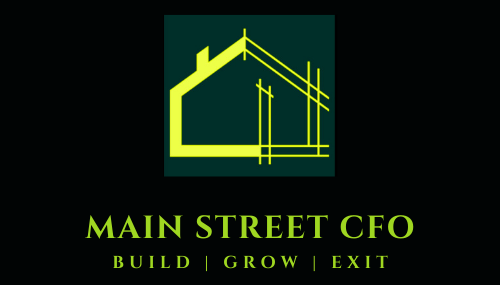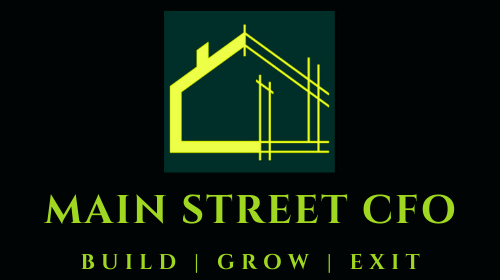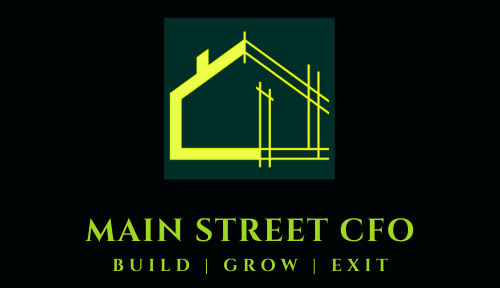Why small business owners need a CFO and Tax Strategist...
How an outsourced CFO Can Boost Cash Flow and Maximize Tax Strategies for Small Businesses
For small businesses, effective cash flow management and strategic tax planning are critical for maintaining financial health and driving growth. An outsourced CFO offers specialized expertise that can significantly enhance these aspects of your business.
Here’s how an outsourced CFO can help:
1. Enhancing Cash Flow Management
a. Detailed Cash Flow Analysis: An outsourced CFO conducts a comprehensive analysis of your current cash flow situation. They track inflows and outflows, identify patterns, and spot areas where cash flow may be lacking. This analysis helps in understanding the cash flow cycle and determining optimal working capital needs.
b. Forecasting and Budgeting: With expertise in financial forecasting, an outsourced CFO creates detailed cash flow projections. They develop budgets that align with your business goals, ensuring that you have a clear view of future cash needs and can plan accordingly. A proactive approach helps in anticipating cash shortfalls and making informed financial decisions.
c. Improving Receivables and Payables: Outsourced CFOs optimize accounts receivable by implementing efficient invoicing processes and follow-up strategies to ensure timely payments. They also review accounts payable practices to negotiate better payment terms with suppliers, manage outflows more effectively, and avoid late fees.
d. Managing Inventory: Effective inventory management is crucial for maintaining cash flow. An outsourced CFO assesses inventory levels and turnover rates to avoid overstocking, which can tie up or strain cash flow. They implement strategies to balance inventory with demand, improving cash availability.
e. Implementing Cash Flow Improvement Strategies: An outsourced CFO develops and executes strategies to enhance cash flow, such as revising pricing models, improving sales processes, or exploring financing options. They also help in managing cash reserves to handle fluctuations and unexpected expenses.
2. Tax Planning Strategies
a. Tax Planning and Advisory Services: Outsourced CFOs are skilled in tax strategists. They evaluate your business structure and financial activities to develop strategies that minimize tax liabilities. This includes maximizing tax credits, deductions, and incentives available to your business.
b. Efficient Expense Management: By thoroughly reviewing your expenses, an outsourced CFO identifies potential deductions and ensures that all eligible expenses are accounted for. They help in categorizing and documenting expenses properly, making it easier to claim deductions and reduce taxable income.
c. Compliance and Risk Management: It is crucial for small business owners to maintain compliance with tax regulations and deadlines. Outsourced CFOs manage tax-related filings/notices, avoid penalties, and address any tax issues proactively. This reduces the risk of audits and ensures smooth interactions with tax authorities.
d. Retirement Planning and Benefits Optimization: They assist in setting up and managing tax-advantaged retirement plans and employee benefit programs. These strategies not only provide long-term financial security but also offer tax benefits to your business.
e. Tax Preparation: At year-end, an outsourced CFO ensures that all tax documentation is accurate and complete. They review financial statements, reconcile accounts, and prepare for tax filings, helping to maximize deductions and credits and minimize the risk of errors.
In summary, there is a happy marriage between outsourced CFO services and tax planning. Small businesses need both now more than ever. The uncertainty brought about by the economy, specifically from politicians who have never run businesses now in positions to create laws affecting those who do, is a major issue to deal with. Staying lean and running efficiently is a must. We can help you do it.













